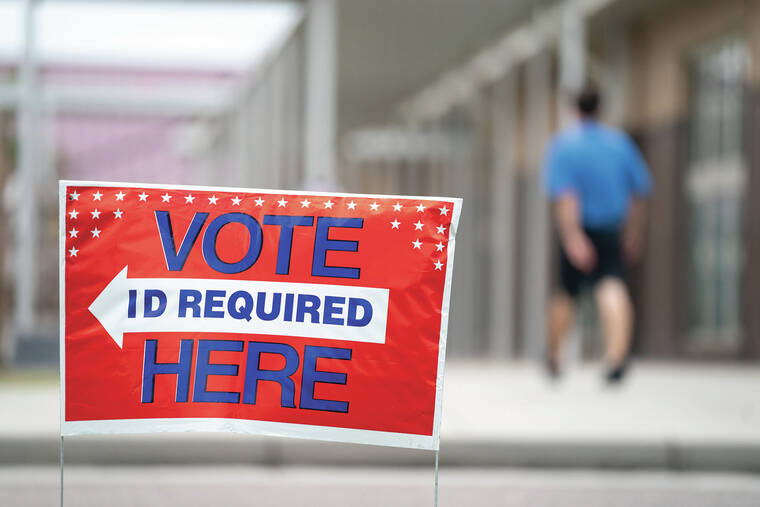Election subversion remains a threat, but some voting restrictions go too far
As the first public hearings about the Jan. 6, 2021, insurrection underscored, the biggest current threat to the integrity of American elections is election subversion — i.e., efforts to interfere with or overturn the counting of votes or certification of elections. No genuine democracy retroactively changes election law after a vote to help a candidate, and while the United States has not yet crossed this Rubicon, it has also never been closer to crossing it in living memory.
However, the hearing also raised awareness of a second threat to the integrity of U.S. elections that is becoming increasingly urgent: unnecessary restrictions to vote casting. The 2020 presidential election was so successful, in part, because election officials took unprecedented steps to both secure their election processes and make them more accessible to voters during the pandemic. These actions not only contributed to the most secure election in U.S. history, but the highest voter turnout in over a century.
ADVERTISING
Rather than seeing the wisdom of expanded access, far too many states — fueled in part by the same mis- and disinformation arising that contributed to the insurrection — are unjustifiably reversing course, creating challenges for their 2022 elections and/or future ones.
For example, Texas adopted legislation in 2021 that now requires each voter to provide their driver’s license number or Social Security number on both their vote-by-mail application and actual ballot. Prior to this law, neither of these numbers was required and there were no findings that justified mandating them. What the law did do was create unnecessary redundancies and the initial consequences were predictable: more than 12 percent of mail-in ballots were rejected in Texas’s March primary, a significant increase over previous elections.
In 2020, Iowa conducted a successful election with record turnout, due in part, to Republican Secretary of State Paul Pate’s decision to mail absentee ballot request forms to all registered voters and extend the state’s early voting window from 29 to 40 days. In 2021, the Legislature responded to this success by shortening the absentee voting window from 29 to 20 days, prohibiting county election officials from sending out mail ballot applications in many cases, and requiring mail ballots to be due when the polls closed, instead of up to a week later if they were in the mail before the election (as had been the case previously). None of these changes were supported by the state’s successful conduct of the 2020 election, and some of them even appear to have created issues in the state’s most recent primary. Thankfully, the state didn’t have any primary races that were as closely contested as the state’s 2020 race for the 2nd district seat in the U.S. House. Otherwise, the consequences of these changes could have been even more significant.
In Georgia, the state passed legislation last year prohibiting the use of mobile voting buses, except during an emergency declared by the governor, after Fulton County successfully used two of them to help administer early voting and backup voting locations that became inoperable during 2020. When I served as elections director in Ada County, Idaho, for the current Republican nominee for secretary of state, our office deployed a similar mobile voting unit to help ensure that voters across the county could securely and easily cast their ballots. If Fulton County successfully used mobile voting buses to administer early voting and other Georgia jurisdictions were making plans to adopt them as well, it’s increasingly difficult to understand why the General Assembly banned their use, particularly after it made clear through legislation adopted last year that it would prefer that more voters vote in person than by mail.
To be clear, there is ample room for disagreement on many election administration policies. For example, as a former election official, I worked in one jurisdiction that did not require an ID to vote and another that did require ID, but also allowed a voter to fill out and sign an affidavit if they forgot to bring their ID to the polls. Neither policy unduly restricts access to the ballot, and both can plausibly be justified in terms of convenience and security. The problematic policies are those that are justified predominantly in terms of “improving voter confidence,” rather than rooted in scientific principles.
Strong democracies seek ways to reflect the expectations that voters have about the choices that should be available to them in their day-to-day lives, and robust pre-election day voting opportunities, both in-person and by mail, have been part of these expectations in the United States for a while, even before the pandemic. Measures that seek to reduce these opportunities should be justified by clear, evidence-based threats to election security. Otherwise, they amount to little more than unnecessary restrictions to accessing the ballot, which can make it harder to vote and corrode trust in the election process.
Some might argue that the imposition of additional restrictions on voting by mail or early voting following the 2020 election is a natural reaction to the lessening of the coronavirus threat. After all, a number of states and their localities chose to increase early voting and mail voting opportunities during 2020, in part, to help ensure that their voters could safely cast ballots, and a lessening of the public health threat should correspondingly reduce the need for more voting opportunities.
Such an argument would have greater traction if the 2020 presidential election was administered poorly, but the election was a resounding success. Therefore, the adoption of additional restrictions on voting by mail or early voting should be met with strong scrutiny, rather than being presumptively considered a good idea. A scrutiny that is even more warranted by the elevation-related mis-, dis- and malinformation that fueled the Jan. 6 attacks on the U.S. Capitol.
David Levine is an elections integrity fellow at the Alliance for Securing Democracy, which develops strategies to deter and defend against autocratic efforts to interfere in democratic institutions.


